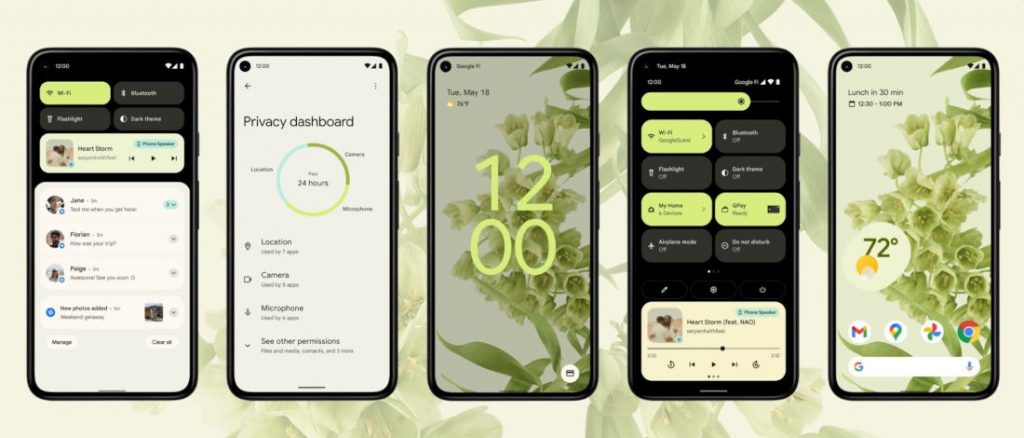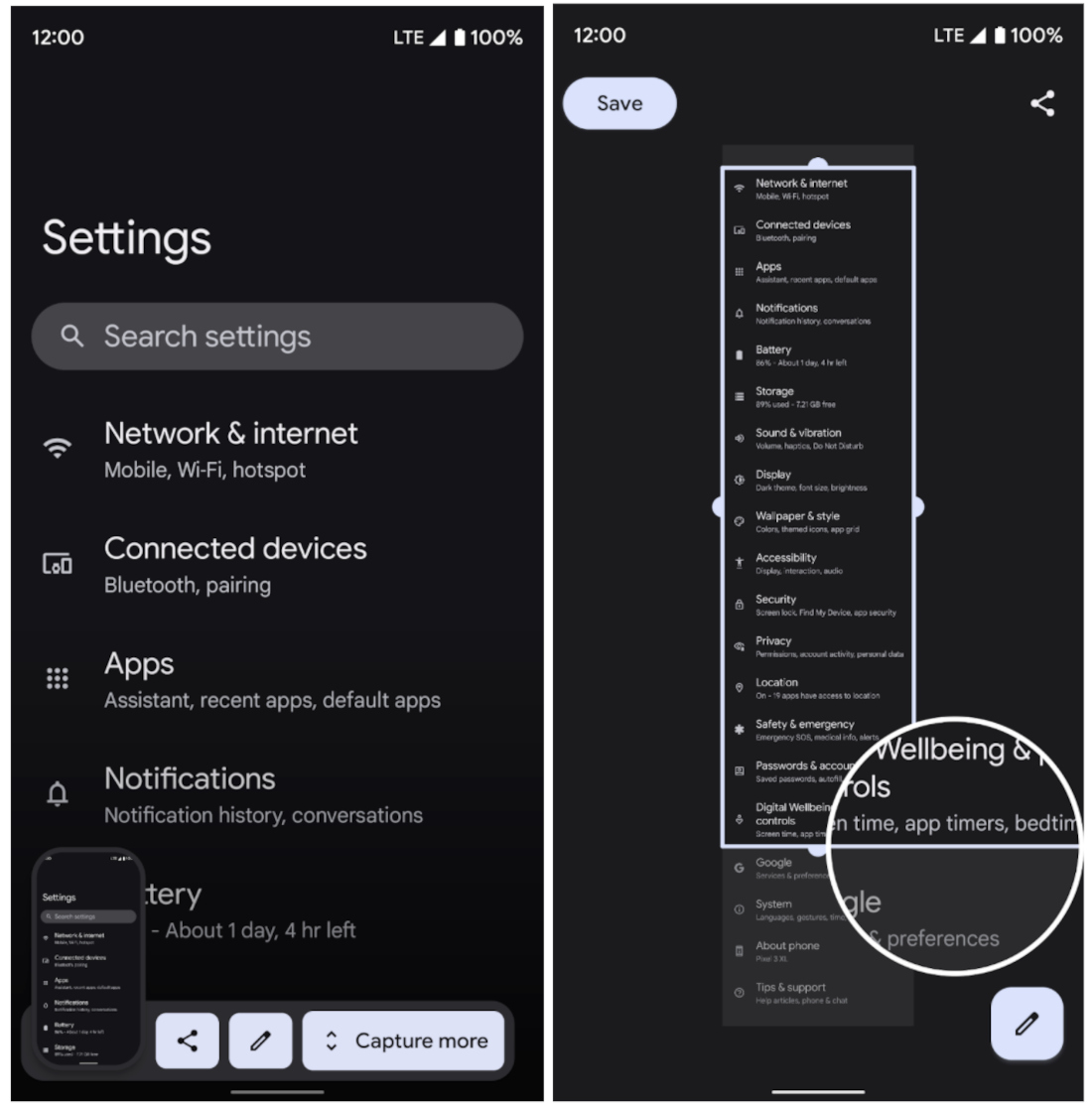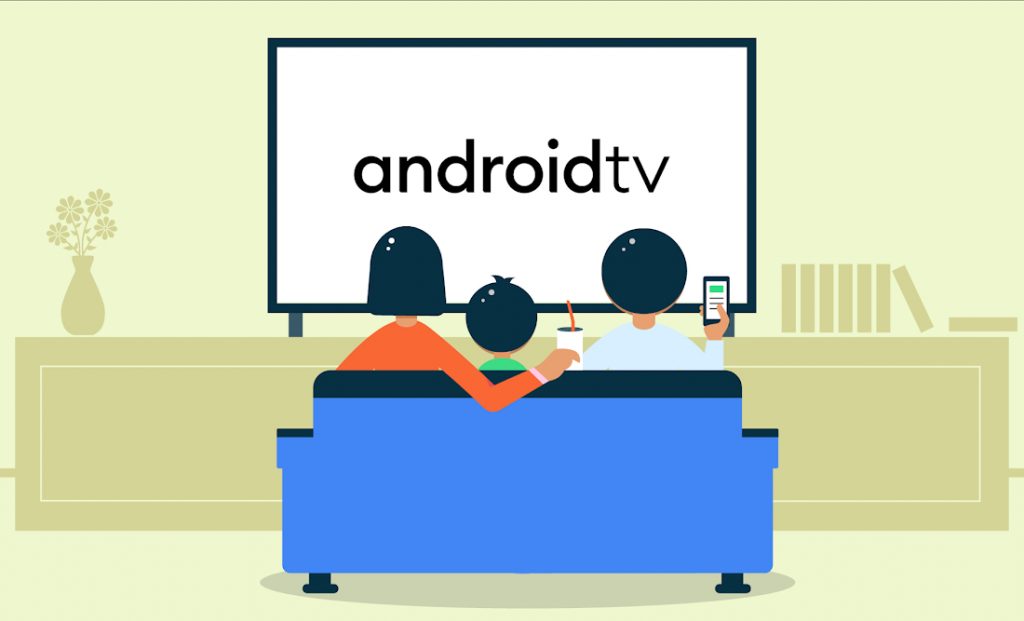
Android 12 is one step closer to its final release as Google has rolled out Android 12 Beta 3 for supported devices. The Beta 3 features various improvements over Android 12 Beta 2, with features such as Scrolling screenshots, On-device search, etc. along with the final APIs and SDK. Google also released the Android 12 Beta 3 for TV with Refresh Rate Switching Settings, 4K UI support and more.
Scrolling screenshots

This is a feature that already exists in many OEM Android versions such as Samsung’s One UI, OPPO’s Colour OS and more. It essentially allows users to capture more content that is scrollable in a single screenshot. If Android detects a scrollable UI when the user takes a screenshot, there will be a new “Capture More” button, which will then extend the screenshot.
On-device search
Google introduced a new AppSearch API, which is basically an on-device search engine that enables apps to index structured data and search over it with built-in full-text search capabilities. The API will have two settings – local index for the app and a central index which will integrate the app’s data in Android 12’s System UI, and it will natively offer features such as highly-efficient indexing and retrieval, multi-language support, and relevancy ranking.
Better, faster auto-rotate
For Pixel 4 and later Pixel devices, the auto-rotate feature in Android 12 Beta 3 will use face detection with the front-facing camera to more accurately recognize when to rotate the screen. Since it uses the Private Compute Core to make the auto-rotate decision, the images are never stored or sent off-device, which ensure security.
Along with this, Android 12 in general will have faster auto-rotate with 25% lower latency, thanks to a new an ML-driven gesture-detection algorithm and optimizations in animation and redrawing.
Android 12 for Games

Android 12 features new Game Mode APIs that allow developers to customize their game performance according to the profile set by the user, such as better battery life or peak performance for maximum framerates. The API will also integrate with an upcoming game dashboard, where key utilities can be accessed during gameplay.
Privacy indicator APIs in WindowInsets
One of the highlighted privacy-focused features in Android 12 are the new notifications when an app uses the device’s camera or microphone. A problem that may arise for developers is if these notifications cover useful content in their app. To solve this, Google introduced a Privacy indicator APIs in WindowInsets, which will allow developers to customize relative placement of the notification on the screen.
The other features in the Beta 3 include the ability to configure camera and microphone toggles in fully managed enterprises devices, along with a permission for CDM-paired apps starting foreground services.
Android 12 Beta 3 for TV

Along with the launch of Android 12 Beta 3 for smartphones, Google also released the Android 12 Beta 3 for their TV OS. It contains a number of new features and improvements that are primarily focused at developers, such as:
- Support for seamless and non-seamless refresh rate switching with the new Refresh Rate Switching Settings.
- More consistent hotplugging behavior with improved reporting of TV display modes.
- Tunnel Mode updates that reduce media processing overhead in the Android Framework for consistent and efficient playback across devices.
- Support for Background blurring in system UI elements for visual separation of different UI layers.
- Support for rendering Android TV OS at full 4k resolution (Finally!)
- New microphone and camera indicators when they are being used by apps.
- Global toggles for microphone and camera access in apps.
- Device attestation to ensure that your application is running on certified and authentic hardware.
Availability
Android 12 Beta 3 is now available for Pixel 3 and later and is also available for Android TV with the ADT-3 developer kit. You can get it from Android developer website here manually, or you can enroll here to get the OTA update to your device. According to the release timeline, Google will roll out the Beta 4 (with Platform Stability) in August before the stable release sometime in September.
